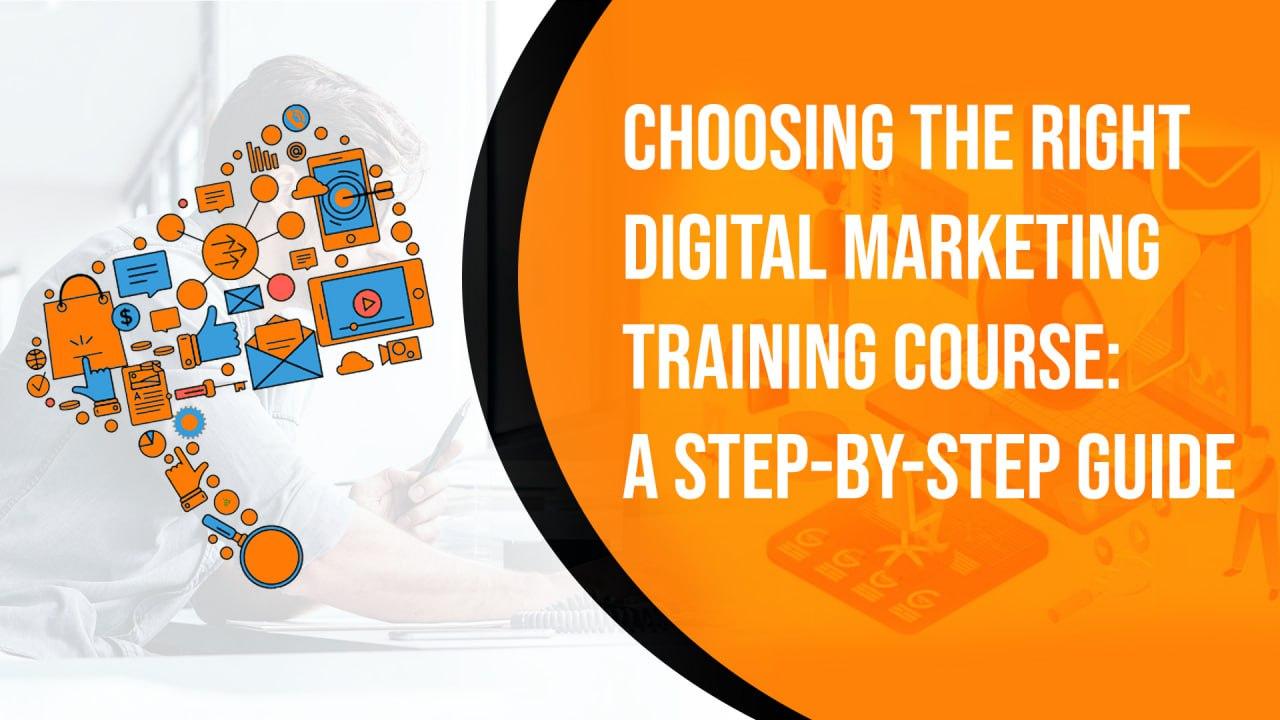
In today’s digital age, staying ahead in the ever-evolving landscape of marketing requires continuous learning and skill development. Whether you’re a seasoned marketer looking to enhance your digital prowess or a newcomer eager to break into the industry, selecting the right digital marketing training course is crucial. With a plethora of options available, navigating through them can be overwhelming. This step-by-step guide aims to simplify the process and help you make an informed decision.
Step 1: Define Your Goals and Objectives
Before diving into the sea of digital marketing courses, take a moment to reflect on your goals and objectives. Are you looking to specialize in a specific area such as SEO, social media marketing, or content marketing? Or do you want a comprehensive understanding of various digital marketing channels? Clarifying your objectives will narrow down your options and ensure that you choose a course that aligns with your aspirations.
Step 2: Research Available Courses
Once you have a clear understanding of your goals, begin researching available courses. Explore both online and offline options, considering factors such as course content, duration, instructor credentials, and reviews from past participants. Look for courses that offer practical, hands-on experience, as digital marketing is a field best learned through real-world application.

Step 3: Assess Course Content and Curriculum
Evaluate the content and curriculum of each course to determine whether it covers the topics that are relevant to your goals. A comprehensive digital marketing course should encompass key areas such as:
- Search Engine Optimization (SEO)
- Content Marketing
- Social Media Marketing
- Email Marketing
- Paid Advertising (PPC)
- Analytics and Data Interpretation
Ensure that the course provides up-to-date information on industry trends, tools, and best practices. Look for case studies and practical exercises that allow you to apply theoretical knowledge in a meaningful way.
Step 4: Consider Learning Format and Flexibility
Consider your preferred learning format and the flexibility of the course. Online courses offer the convenience of learning at your own pace and from the comfort of your home, while in-person workshops provide opportunities for networking and direct interaction with instructors. Choose a format that suits your learning style and schedule.
Step 5: Check Instructor Credentials and Reviews
Research the credentials and experience of the course instructors. Look for instructors who have practical experience in the field of digital marketing and a track record of success. Read reviews and testimonials from past participants to gauge the quality of instruction and the overall learning experience.
Step 6: Evaluate Cost and Return on Investment (ROI)
Consider the cost of the course in relation to the value it provides and the potential return on investment (ROI). While cheaper courses may seem attractive, prioritize quality and relevance over cost. Remember that investing in your education is an investment in your future career success.
Step 7: Seek Additional Resources and Support
Look for courses that offer additional resources and support to enhance your learning experience. This could include access to online forums, community groups, mentorship programs, or supplementary materials such as e-books, webinars, and toolkits. A supportive learning environment can significantly contribute to your success.
Step 8: Take Advantage of Free Trials and Samples
Before committing to a course, take advantage of free trials, samples, or introductory modules, if available. This will give you a glimpse into the course content, teaching style, and overall learning experience, helping you make a more informed decision.
Step 9: Trust Your Instincts
Finally, trust your instincts and intuition when choosing a digital marketing training course. Select a course that resonates with you and inspires confidence in your ability to achieve your goals. Remember that learning is a journey, and the right course will equip you with the knowledge and skills to navigate the ever-changing landscape of digital marketing with confidence and competence.
In conclusion, choosing the right digital marketing training course requires careful consideration and research. By following this step-by-step guide and keeping your goals in mind, you can select a course that propels your career forward and positions you for success in the dynamic world of digital marketing. Happy learning!



